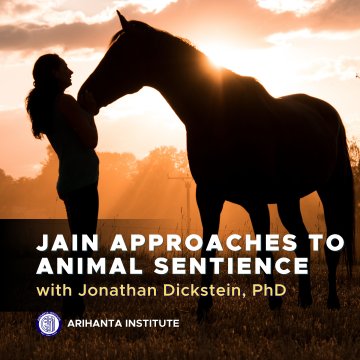Jain Approaches to Animal Sentience
Course Number: 1011Jainism’s foundational ethical principle of non-harming assumes that living beings can be harmed by the acts of others. The ability to be harmed by others is not shared by all entities, as neither Jainism or mainstream science maintains that brute objects such as tables or bricks can be, technically speaking, “harmed.” Learn Jain and non-Jain perspectives on the differences between sentient and insentient entities; Jain categorizations of plant and animal life; modern philosophical and scientific approaches to sentience; the relationship of sentience to ethics; and the theoretical and ethical challenges posed by entities such as plants, insects, bivalves, and other beings. All suggested course readings are provided as links and pdfs throughout the course.
Learning Objectives:
* Answer the question “What is Sentience?” and learn western scientific approaches to sentience
* Learn Jain approaches to sentience which consider sense faculties and minds
* Understand the connections between sentience, pain, and ethics
* Look at sentience “on the fringes” including questions around plants, bivalves, and other beings



 Jonathan Dickstein, PhD
Jonathan Dickstein, PhD